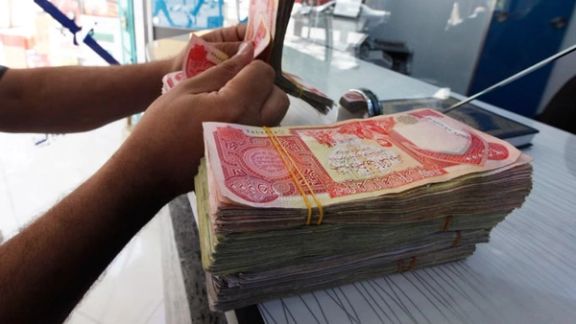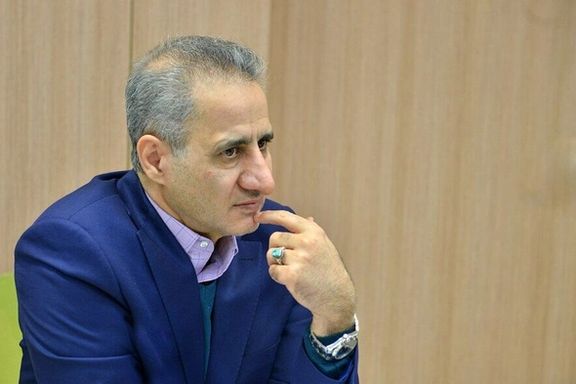Iran Irked By Iraqi MP’s Claim Of Dollar Smuggling

Iran’s Oil Products Exporters Union has reacted to the recent accusations made by an Iraqi MP regarding the smuggling of dollars to Iran through Argentina.

Iran’s Oil Products Exporters Union has reacted to the recent accusations made by an Iraqi MP regarding the smuggling of dollars to Iran through Argentina.
Hamid Hosseini, the spokesperson of the Iranian Oil, Gas, and Petrochemical Products Exporters Union, said Friday that this was a "very serious accusation" and called for accountability from the parliament, parties, and the central bank of Iraq.
Muhammad Nuri Aziz, a member of the Iraqi parliament, said on a television show last week that Iraqi Prime Minister Mohammed Shia al-Sudani and the country’s central bank are aware of the schemes Iran uses to get hold of US dollars it desperately needs amid US sanctions. The lawmaker noted that the smuggling started during Mustafa Al-Kadhimi's term as prime minister and still continues. Without providing any context or details, the Iraqi lawmaker alleged that Iran prints Iraqi dinars in Argentina, exchanges the money to US dollars in Iraq, from where it is smuggled to Iran by trucks.
The Iranian official said warned that given the recent alignments of some Iraqi officials with the United States against Iran, “it appears that these allegations may pave the ground for more serious disputes in the future.”
“This is a style of accusation by Iraqi nationalists and Ba'athists,” he claimed, accusing an Iraqi politician who happened to criticize the Iranian regime, without offering any evidence.

Hosseini emphasized that Iran has been a strong supporter of Iraq, contributing significantly to its security and stability. He urged the Iraqi authorities and parties to address this issue and demanded that the Iranian embassy take action in response to the accusation. “If someone in the Iranian parliament had said such a thing, all of Iraq would have taken a position," he noted.
A source with the Iraqi government told Iran International that following the recent restrictions on Iraqi banks by the US, a portion of the smuggling is being carried out through shell companies, electronic travel cards, online shops, exchange offices, and even suitcases.
Reports about the transfer of $165 million to Iran within less than a month by just one exchange office led authorities to discover dozens of similar cases by other exchange offices.
The credibility of the Iraqi banking system has been tarnished due to the Islamic Republic's influence, and US financial restrictions have tightened on Baghdad because evidently all Iraqi banks have had interactions with the Islamic Republic.
Late in July, 14 Iraqi private banks sanctioned by Washington over helping to siphon US dollars to Iran said they were ready to challenge the measures and face audits and called on Iraqi authorities to provide assistance.
The US barred the Iraqi banks from conducting dollar transactions as part of a wider crackdown on dollar smuggling to Iran. The latest sanctions, along with earlier ones, have left nearly a third of Iraq's 72 banks blacklisted, two Iraqi central bank officials said.
The dinar has been falling against the dollar since the New York Federal Reserve imposed tighter controls on international dollar transactions by commercial Iraqi banks in November to halt the illegal siphoning of dollars to Iran.
Under curbs that took effect in January, Iraqi banks were required to use an online platform to reveal their transaction details. But most private banks have not registered on the platform and resorted to informal black markets in Baghdad to buy dollars.
Iran International revealed in May that an aide to former IRGC’s Quds force commander Qassem Soleimani, is a key figure in money laundering for Tehran. Iran International also reported details about the inner workings of a Quds force unit tasked with smuggling money from Iraq to Iran, proving that the Islamic Republic’s embassy in Iraq is also involved in money laundering operations aimed at funneling revenues from oil and gas exports back to Iran.